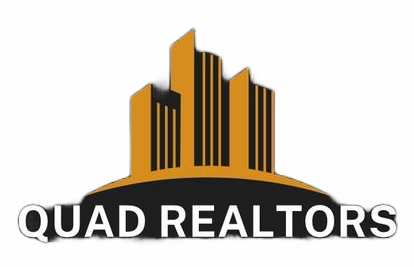Things To Consider While Investing/ Buying Property
HOME SERVICES PROJECTS HOME LOAN HOME INTERIOR LEGAL BLOG CONTACT US Things To Consider While Buying Property Complete Guide To Buying Property Sanctioned building plan from the local authority(BBMP). The Completion Certificate (CC) and Occupancy Certificate (OC) Possession certificate Khata of the property Conversion and land-use permissions Construction approvals Encumbrance Physical survey and access to the property Status of tax payment Nature of title: Leasehold, freehold, or development right Regulation and Development Act, 2016 (RERA) Sanctioned building plan from the local authority(BBMP) A sanctioned building plan from the local authority (BBMP) means that the building plan for a particular property has been approved and has met all the necessary regulations and requirements set by the BBMP. The property owner can proceed with the construction or renovation of the building based on the sanctioned plan. The Completion Certificate (CC) and Occupancy Certificate (OC) A Completion Certificate (CC) is a document issued by the local authority (BBMP) that certifies that a building has been constructed as per the approved building plan and has met all the necessary regulations and requirements set by the BBMP. It is issued after the inspection of the construction site. An Occupancy Certificate (OC) is a document issued by the local authority (BBMP) that certifies that a building is fit for occupation and can be used for its intended purpose. It is issued after the building has been completed and all necessary inspections have been carried out. The OC certifies that the building is safe for its intended use and meets all fire safety and other safety requirements. Both the CC and OC are important documents for the property owner as they ensure that the building is constructed and occupied legally and safely. Possession certificate A possession certificate is a document issued by the government that certifies an individual’s ownership of a property. It serves as proof of ownership and can be used for various legal transactions related to the property. The certificate usually includes details such as the name of the owner, the address of the property, and the date of possession. It is an important document for property transactions and is required for various government procedures such as obtaining a home loan or selling a property. Conversion and land-use permissions Conversion and land-use permissions refer to the process of obtaining approval from the government to change the use or purpose of a piece of land. This typically involves converting agricultural land into residential or commercial land, or changing the use of a commercial property to a residential property. In order to obtain conversion and land-use permissions, an individual must follow the procedures set out by the relevant local or state government authority, which may include submitting an application, providing relevant documentation, and paying any associated fees. The government will then assess the application and determine if the conversion or change of use is in line with local planning policies and regulations. It is important to note that conversion and land-use permissions are governed by local laws and regulations, and can vary from state to state in India. Failure to obtain the necessary approvals may result in legal consequences, such as fines or the requirement to revert the land back to its original use. Construction approvals Construction approvals refer to the process of obtaining permission from the government to construct a building or other structure on a piece of land. The approval process is typically required for new constructions, additions, or renovations to existing structures. To obtain construction approvals, an individual must follow the procedures set out by the relevant local or state government authority, which may include submitting plans and designs, providing documentation, and obtaining necessary permits. The government will then review the plans and assess if the proposed construction is in compliance with local building codes, zoning regulations, and environmental laws. It is important to note that the process of obtaining construction approvals can be complex and time-consuming, and can vary depending on the jurisdiction and the nature of the project. Failure to obtain the necessary approvals can result in legal consequences, such as fines, or the requirement to demolish the structure. Hence, it is essential to have a thorough understanding of the local laws and regulations, and to engage the services of professionals, such as architects, engineers, and lawyers, to ensure a smooth and successful approval process. Encumbrance certificate An encumbrance certificate is a legal document issued by the government that provides information about any outstanding liabilities or obligations related to a property. It is a critical document for property transactions as it certifies that a property is free from any outstanding debts, mortgages, or legal disputes. The encumbrance certificate includes details such as the name of the property owner, the location of the property, and the status of any mortgages, liens, or other obligations associated with the property. It also includes information about any previous transactions or transfers of ownership. The encumbrance certificate is important for individuals who are buying or selling a property, as it provides assurance that the property is free from any outstanding debts or legal disputes. It is also used by financial institutions when granting loans against property, as they need to ensure that the property has clear ownership and is free from any encumbrances. It is important to note that the issuance of an encumbrance certificate is governed by local laws and regulations, and can vary from state to state in India. The validity period of the certificate may also vary, and it is important to obtain a current certificate at the time of the transaction. Physical survey and access to the property Physical survey and access to a property refer to the process of evaluating and inspecting a property in person. A physical survey is conducted to determine the exact boundaries, size, and location of a property and to identify any physical features such as buildings, structures, trees, and waterways. Access to the property is also necessary to conduct a physical survey, as it allows the … Read more




